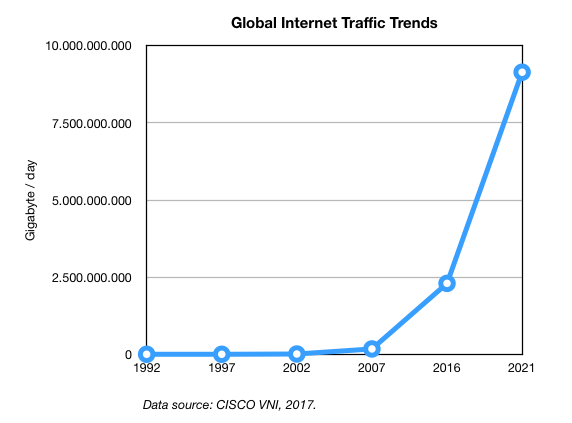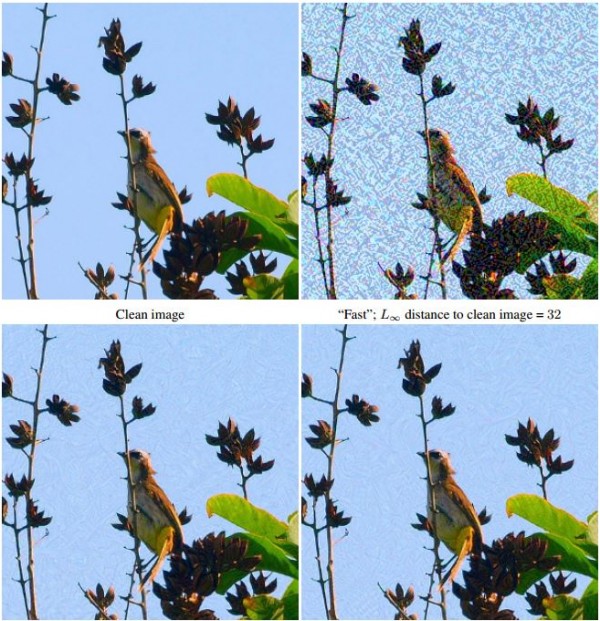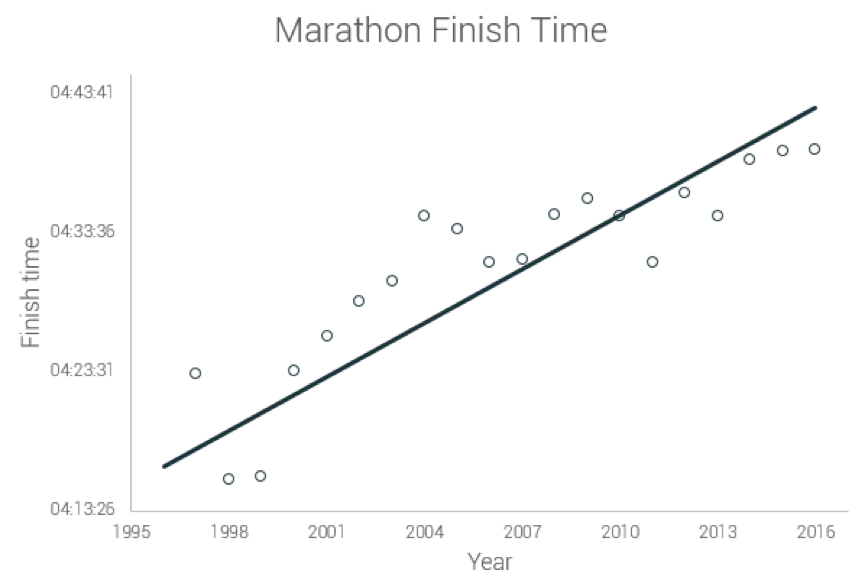LET’S BE FWENDS ISSUE #19:
THIS IS NOT THE DAWN OF ARTIFICIAL INTELLIGENCE

Source:Christopher Bahry for Archillect
The incredible amount of data generated
First of all - Happy new year! I hope you spent New Years Eve in good company and had a splendid time. Did you notice the number of #NYE posts in your Instagram feed? There are currently 8 million images onInstagram tagged with that hashtag.
The amount of data generated by social media users around the world is mind blowing. For example: 432.000 hours of video are uploaded to YouTube. Per day. That’s 18.000 days, or roughly 50 years of video.

_Source: Screenshot._To me, most numbers get pretty arbitrary once they are high enough. What is a petabyte of data? Who knows. Or a trillion dollars? Who cares? But if you slow the pace down enough, you can get some meaning out of those numbers. Everysecond.io is a neat website that shows you what is going on, per second. That makes everything much more manageable.
The pace is picking up

And the amount of data generated is continuing to grow exponentially. It now takes us roughly 5 seconds to generate an hours worth of data from 10 years ago. It’s no wonder that a lot of thought was put into making sense of all that data. Doing it by hand was out of the question, so we invented software to do it for us. And as things go, this software become really powerful and extremely good at its tasks - much better than any human could ever be.
Everybody started talking about Artificial Intelligence - A.I. - again. When we have algorithms that can drive cars safely, make robots avoid falling when pushed, answer questions about celebrities, beat highly sophisticated machines playing chess - did we not invent something that is equally as good or even better at a lot of things than humans? And if so, did we not invent Artificial Intelligence?
In short: No.
The difference between General and Specific
**What we did create was incredibly powerful data processing algorithms that work well within the problem domain they were designed for.**A robot that doesn’t fall down can do exactly that: Not fall down. It cannot beat a Grandmaster in a chess tournament. A computer that is able to beat a Grandmaster in chess is unable to drive a car. And so on.
When people talk about Artificial Intelligence, they usually mean Artificial General Intelligence. Something you see in Science Fiction movies. Artificial beings like C3PO or R2D2. And we still have no idea how to do that.
When machine learning goes wrong: Adversarial images

The advances in image recognition are responsible for a lot of the innovation we see in the field of data processing and automation. A lot effects we now attribute to “AI” come from this. Now there is a serious threat coming to systems building on these advances (for example, face recognition software): Adversarial images. In the picture above, image processing algorithms are able to detect the bird only in the upper left, “clean” image. All other images have been altered - sometimes nearly unrecognizably to humans - in a way that will make the algorithm fail and detect nothing, or something else.
And in a more general sense, researchers are arguing that machine learning algorithms decay over time unless supervised. But how can you manually supervise something that produces millions of decisions per second?
Autonomous cars are so yesteryear

What about a robotic motorcycle?
Speaking of data …

As a cyclist, I don’t run. I tried it a few times, thinking: I’m a reasonably fit cyclist. Cycling is an endurance sport. Running is an endurance sport. How bad can I be at running?
Pretty bad, was the answer.
So, in the true spirit of the hobbyist athlete, I’ll wait until the average marathon runner is so slow that I can easily overtake them before picking up running again. Which I suppose will be well after my 80ies. By then, I’ll put my trust in my robotic walker to do the heavy lifting.
That’s it from this edition of Let’s be Fwends. If you, too, have created or processed some data today, please high-five yourself, you amazing general intelligence! 📈
Subscribe to Let's be Fwends